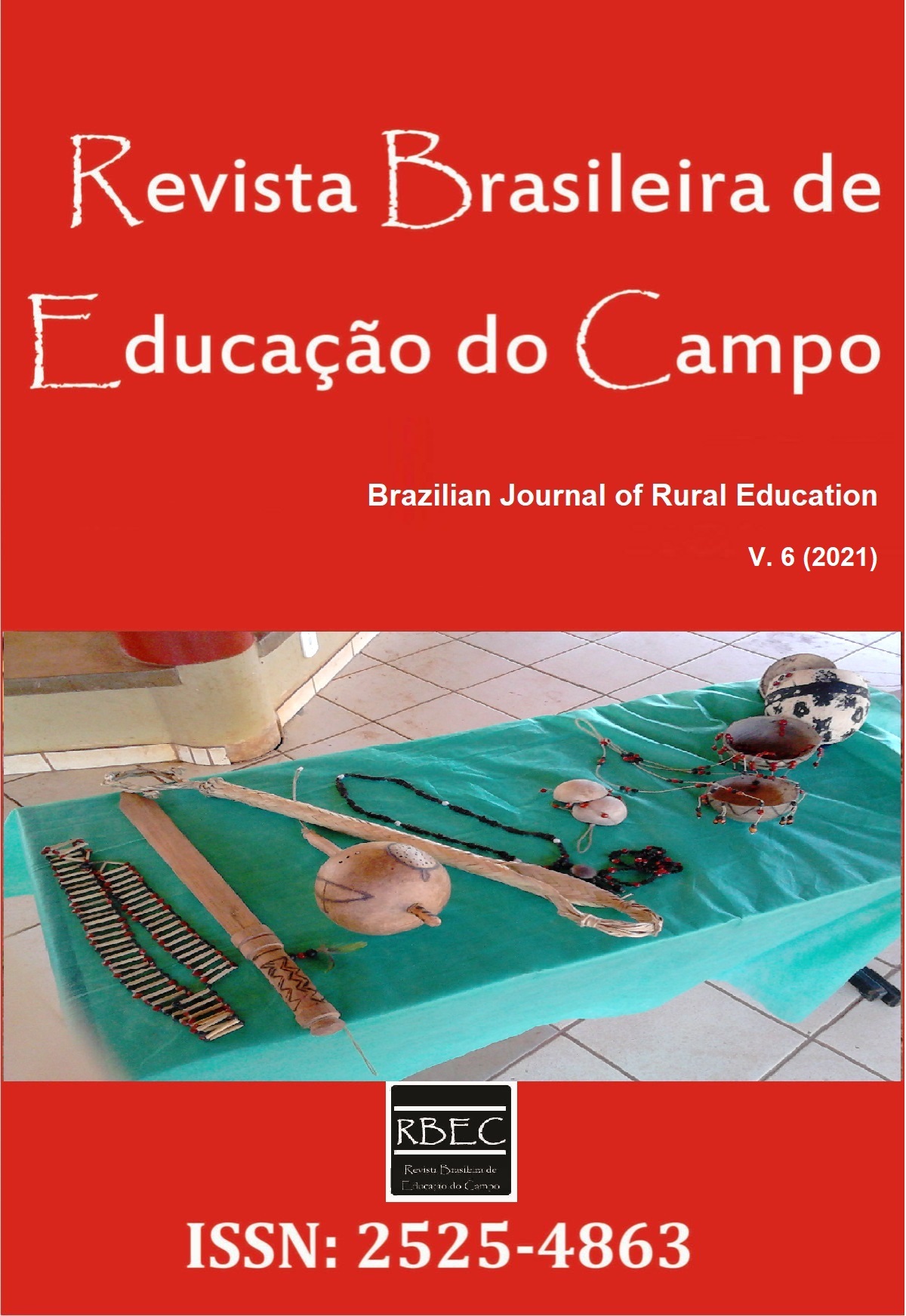Trajectories of peasant women: the struggle for education
DOI :
https://doi.org/10.20873/uft.rbec.e11903Mots-clés :
Education as a right; female trajectories; female narrativesRésumé
ABSTRACT. This article is a reinterpretation of the research implemented in the doctoral process in which the social representations of ‘writing’ of undergraduate students in the rural education was studied. Curso Linguagens e Códigos da Universidade Federal dos Vales do Jequitinhonha e Mucuri (UFVJM). In the thesis, narrative interviews were conducted with a group of 15 undergraduates in order to understand their relationships/conceptions of writing. Then, it was possible to notice the importance of the female figure in the fight for a free, high quality rural education. Mothers, wives, girlfriends, were widely mentioned as having decisive roles in students entering as well as their remaining in the undergraduate course. Thus, it was from the narrative interviews that a question has been posed, and has, in the space of this article, an opportunity for reflection. If women are the ones encouraging their partners, children, brothers, to further their studies, how do such women organize themselves so that they too can study? What is the necessary support so that such women can ‘leave home’? From a methodological point of view, two testimonies from young women coming from different backgrounds were selected.
Téléchargements
Références
Caldart, R. S., Pereira, I. B. P., Alentejano, P., & Frigotto, G. (Orgs.). (2012). Dicionário da educação do campo. (s./p.). Rio de Janeiro. São Paulo. Escola Politécnica de Saúde Joaquim Venâncio. Expressão Popular.
Caldart, R. S. (2003). A escola do campo em movimento. Currículo sem Fronteiras, 3(1), 60-81. Recuperado de: www.curriculosemfronteiras.org. Acesso em 20/fevereiro/2017.
Caldart, R. S. (2000). Pedagogia do Movimento Sem Terra: escola é mais do que escola. Petrópolis, Rio de Janeiro: Vozes.
Freire, P. (1992). Pedagogia da Esperança: um reencontro com a Pedagogia do Oprimido. Rio de Janeiro, Paz e Terra.
Gonçalves, R. (2009). (Re)politizando o conceito de gênero: a participação política das mulheres no MST. Dossiê: Contribuições do pensamento feminista para as Ciências Sociais. Mediações- Revista de Ciências Sociais, 14(2), 198-216. https://doi.org/10.5433/2176-6665.2009v14n2p198
Gonzalez, L. (1988). A categoria político-cultural de amefricanidade. Tempo Brasileiro, 92/93. 69-82.
Martuccelli, D. (2007). Gramáticas do Indivíduo. Buenos Aires: Losada.
Melo, E. J. (2001). Gênero e Jornada de Trabalho em Assentamentos Rurais. Revista Pegada, 15(2), 151-170. Recuperado de: https://revista.fct.unesp.br/index.php/pegada/article/viewFile/2387/2627. Acesso em 20/02/21.
Valenciano, R. C., & Thomza JR., A. (2002). O papel da mulher na luta pela terra: uma questão de gênero e/ou classe? Revista da Geografia do Trabalho, 3, 1-14. https://doi.org/10.33026/peg.v3i0.792
Téléchargements
Publié-e
Comment citer
Numéro
Rubrique
Licence
Proposal for Copyright Notice Creative Commons
1. Policy Proposal to Open Access Journals
Authors who publish with this journal agree to the following terms:
A. Authors retain copyright and grant the journal right of first publication with the work simultaneously licensed under the Creative Commons Attribution License that allows sharing the work with recognition of its initial publication in this journal.
B. Authors are able to take on additional contracts separately, non-exclusive distribution of the version of the paper published in this journal (ex .: publish in institutional repository or as a book), with an acknowledgment of its initial publication in this journal.
C. Authors are permitted and encouraged to post their work online (eg .: in institutional repositories or on their website) at any point before or during the editorial process, as it can lead to productive exchanges, as well as increase the impact and the citation of published work (See the Effect of Open Access).














